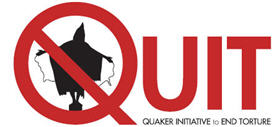Monday, April 23, 2012
Failure to Prosecute Bush for Torture Merits UN Reprimand
Failure to Prosecute Bush for Torture Merits UN Reprimand, Attorneys Say
Human Rights Groups say Canada Violated
Convention Against Torture Obligations
April 23, 2012, Vancouver, BC and New York—On Friday, the Center for Constitutional Rights (CCR) and the Canadian Centre for International Justice (CCIJ) filed a report with the UN Committee Against Torture, arguing that Canada violated its obligations under the UN Convention against Torture (CAT) when it failed to investigate and prosecute former President George W. Bush for torture, during his visit to Canada in the fall of 2011. CCR and CCIJ have asked that the Committee to investigate the case and make specific recommendations to Canada regarding future compliance.
“We call upon the Committee Against Torture to take this opportunity to remind Canada – and other signatory States – of their obligation to investigate and prosecute torturers present in their territory, even when the alleged torturer is the former president of the United States,” said CCR senior staff attorney Katherine Gallagher. “Only when States comply with their obligations will the Convention Against Torture serve as an effective tool to end impunity and deter torture.”
In October, 2011, four individuals who allege they were tortured during Bush’s tenure as president of the United States lodged a private prosecution against him in Provincial Court in Surrey, British Columbia. Mr. Bush was visiting Canada for a paid speaking engagement at the Surrey Regional Economic Summit. CCR and CCIJ had previously called repeatedly for the Attorney General to investigate Mr. Bush for torture. Those calls went unanswered. Within hours of the filing with the court, the Attorney General stayed the private prosecution.
Matt Eisenbrandt, legal director of CCIJ, said, “The Canadian government violated its international obligations and forced these men to initiate their own legal proceedings. Those efforts were then thwarted by government officials, blocking all hopes for the survivors to get justice and allowing Mr. Bush to visit Canada with impunity.”
The four men, Hassan bin Attash, Sami el-Hajj, Muhammed Khan Tumani and Murat Kurnaz, allege that they endured years of beatings, being hung from walls or ceilings while handcuffed, lack of access to toilets, sleep, food and water-deprivation, exposure to extreme temperatures, sensory overload and deprivation, and treatment while in U.S. custody at military bases in Afghanistan and/or at the detention facility at Guantánamo Bay. Three of the plaintiffs have since been released without ever facing charges. Hassan Bin Attash remains in detention at Guantánamo Bay; he too has not been formally charged with any wrongdoing.
CCR and the CCIJ previously submitted a 69-page page draft indictment, with more than 4,000 pages of supporting material, contending that by Bush’s own admission he sanctioned and authorized acts that constitute torture under the Canadian criminal code and the CAT. George Bush and former U.S. vice president Dick Cheney both made trips to Canada in 2011, without any legal consequence. More than 50 human rights organizations from around the world and prominent individuals signed on to a letter in support of the call for George W. Bush’s prosecution, including former UN Special Rapporteurs on Torture and Nobel Peace Prize winners.
In February 2011, the Center for Constitutional Rights and other human rights organizations attempted to initiate criminal proceedings against Bush during a private speaking engagement in Geneva, but he canceled reportedly after news of the planned prosecution came to light. Following the cancellation, CCR and the European Center for Constitutional and Human Rights released the “Bush Torture Indictment,” which can serve as the basis for country-specific indictments against Bush in any of the 147 countries that have ratified the UN Convention Against Torture or have universal jurisdiction laws for torture.
The Canadian Centre for International Justice works with survivors of genocide, torture and other atrocities to seek redress and bring perpetrators to justice. The CCIJ seeks to ensure that individuals present in Canada who are accused of responsibility for serious human rights violations are held accountable and their victims recognized, supported and compensated. For more information visit www.ccij.ca and follow @CCIJ_CCJI.
The Center for Constitutional Rights is dedicated to advancing and protecting the rights guaranteed by the United States Constitution and the Universal Declaration of Human Rights. Founded in 1966 by attorneys who represented civil rights movements in the South, CCR is a non-profit legal and educational organization committed to the creative use of law as a positive force for social change. Visit www.ccrjustice.org and follow @theCCR.
Subscribe to:
Post Comments (Atom)

No comments:
Post a Comment
Note: Only a member of this blog may post a comment.